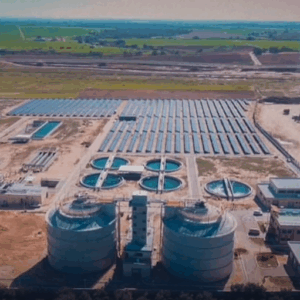
‘OMNIBUS’ Legislation – The European Union threatens to backtrack on its commitments to human, social, and environmental rights
Press release signed by ActionAid, Les Amis de la Terre France, Bloom, CCFD Terre Solidaire, la CGT, collectif Éthique sur l'Etiquette, Notre Affaire à Tous, Oxfam France and Reclaim Finance.
The European Commission is considering an « Omnibus » legislation to simultaneously renegotiate certain aspects of the Directive on Due Diligence, the Directive on Sustainability Reporting, and the Green Taxonomy. Member organisations from the French coalition ‘Forum citoyen pour la justice économique’ strongly oppose this attempt to roll back existing regulations that enhance corporate responsibility regarding human rights, environmental issues, and climate change.
During a press conference on November 8th, the President of the European Commission, Ursula von der Leyen, discussed various strategies aimed at reducing the « bureaucracy » supposedly weighing on European companies. She thus announced her intention to review « the triangle of Taxonomy, [the directive on non-financial reporting] CSRD, and [the directive on due diligence] CS3D ».
These « Green Deal » legislations had been adopted by European legislators during the previous mandate, enabling significant progress in terms of social and environmental rights. These texts, which also aim to help Europe achieve carbon neutrality by 2050, were the result of lengthy negotiations and have already entered into force.
Competitiveness or the Repeated Mantra of Private Sector Lobbies
This possible questioning of the achievements of the previous mandate occurs in a context where private sector lobbies are attempting to instrumentalize « competitiveness » and « administrative simplification, » as advocated by the Draghi report published in September, as well as the Budapest Declaration adopted by the 27 member states in early November in Europe, to undo the advancements made by the Green Deal.
Last week, 25 European business organisations called on the European Commission to take actions aimed at assessing the impact on competitiveness of the Directive on Due Diligence – adopted last June and supposed to be transposed by 2026 – and to delay its implementation. Just a few days ago, the spokesperson for MEDEF (France) even called for « a total overhaul » of this directive.
The Omnibus, the Trojan Horse that undermines the substance of regulations?
The Commission is now considering the adoption of an « Omnibus » directive, which is a comprehensive text intended to revise several already adopted regulations. In theory, this new legislation could only address formal aspects, but under the pressure of lobbies, there is little doubt that it would undermine certain key substantive provisions essential for upholding human rights and environmental protection. The recent example of the Deforestation Regulation illustrates this sad reality: the implementation of this regulation, which aims to prohibit products linked to the destruction or degradation of forests from entering the European market, has been postponed by a year due to the influence of agro-industrial lobbies.
The review of these texts could allow member states to sabotage civil liability (the principle that corporate responsibility can be invoked before a judge), which had been accepted by a majority of member states and the European Parliament during the previous mandate. However, without civil liability associated with potential breaches by multinationals, the text would lose its binding nature and betray its objective of protecting populations and the planet. For workers and residents in producing countries, regulating the activities of parent companies and contracting firms is a matter of survival.
Moreover, questioning climate-related obligations would be even more shocking as the damages linked to global warming are multiplying. Companies must now adopt and implement a climate transition plan aligned with science. Without this alignment of companies with European climate targets, it will be impossible to meet the commitments of the Paris Agreement. Yet, it is precisely these obligations that opponents of the Green Deal wish to see removed from the texts to continue their irresponsible « business-as-usual. »
Thus, the defence of workers’ rights and the environment are currently being challenged by corporate lobbies and certain European institutions. The progress made in recent years, hard-won by trade unions, civil society organisations, and their political allies, is in jeopardy.
While farmers are mobilising against the MERCOSUR free trade agreement in France and Europe, organisations from the French coalition ‘Forum citoyen pour la justice économique’ wish to remind everyone that social, economic, and environmental rights are not a threat to the competitiveness of European companies, but rather a necessity for developing a fair and sustainable economy that looks to the future and respects both people and the planet.

















